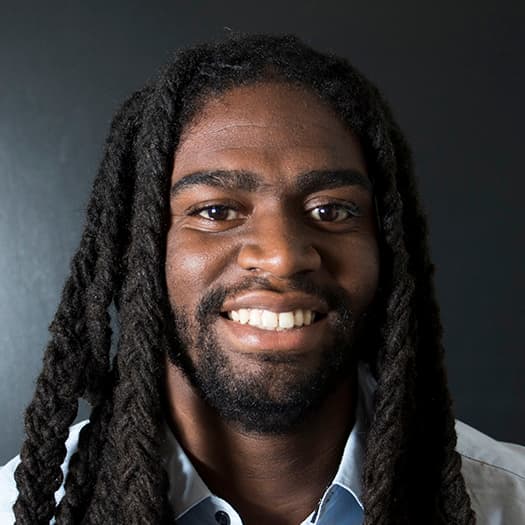
As it stands now, Denver's mayor appoints the city's sheriff. That's far from the norm in Colorado, and some would like it to change.
Lisa Calderon, co-chair of the Colorado Latino Forum, believes Denver must transition from the current system to one that allows Denver residents to elect their sheriff.
She believes in that concept so firmly that she is prepared to put a measure on the 2019 ballot, with the aid of a sponsoring City Council member, asking her fellow Denverites if they agree that changing the process will, as she said, “bring accountability we haven’t had in years for one of the most important positions in our city.”
Calderon’s concerns with the current appointment system center around the potential for a lack of accountability and representation.
“Hancock said he would allow community input from Latino and black communities and women-of-color inmates, who are the fastest growing group of overrepresented groups, but we just ended up with more mayoral appointees," she said. “We need to shake up who the city is for, we need a check-and-balance system. The jail should run independently regardless of who the mayor is.”
Calderon finds the appointment system especially problematic because she believes the sheriff’s department, by way of overseeing the jail, currently serves as a means to deal with a plethora of social ills.
“All roads lead to jail, currently — poverty, mental illness, etc.,” she said.
The Denver Sheriff Department has been under intense scrutiny for recorded misconduct over the last several years, leading Mayor Michael Hancock to turn the leadership of the department over to Patrick Firman in 2014. While the department has seen some substantial improvement, it is far from doing its best job, according to the Office of the Independent Monitor. Its most most recent semi-annual audit saw an uptick in complaints over the first half of 2017.

As Denver 7 reported earlier this year, recent audits have also found shortcomings in the jail system, namely more than 260 cases of excessive force, that have not been adequately addressed by the sheriff and his department, leaving both inmates and deputies in dangerous situations.
Calderon is not alone in her thinking, and in fact, 97 percent of all counties in Colorado have legislation to support an elected sheriff. Only Denver and Broomfield counties still maintain an appointment process.
With representative democracy being at the forefront of their agenda, Black Lives Matter 5280 believes having appointed officials in positions such as the head of the Sheriff Department works directly against residents' progress.
“Representative democracy is about the people deciding their leaders” Vincent Bowen, one of BLM's leaders, said. “We need as many elected officials as possible to represent the true will of the people.”
Bowen acknowledged the other checks and balances on law enforcement that exist in Denver, but said he feels as though they function as a charade — hearing community grievances but not often facilitating any legitimate structural changes.
“This is exactly the kind of non-representative system that has kept black folks and brown folks and all folks from being liberated,” Bowen said.

Michael Jackson, president of Denver’s chapter of the Fraternal Order of Police, frankly stated his frustration as a deputy with the current system of mayoral appointment, but emphatically noted that it must be even more problematic from the standpoint of a community member.
“Having an election is not a perfect system, but it’s definitely better than now," Jackson added. "If you ask any deputy, would they want an appointed sheriff or an elected one, they would easily say elected.”
He said an elected sheriff would be more accountable and bring clearer direction that deputies have found wanting under the appointment system. The Fraternal Order of Police, which boasts 690 members, serves a strong gauge for the sentiment of the police force as a whole.
Jackson referenced other deputies who said it's “embarrassing” for them to be subjected to the consequences of decisions made by a sheriff who many of them see as a figurehead for the current administration who is never held accountable for the decisions being made.
“If he or she can’t get it done," Jackson said, "it’s simple, they don’t get elected again.”
But some have pointed out that electing a sheriff may not serve as a cure-all for the problems of the jailing system and could even unintentionally make an unsatisfactory situation worse.
“I need to know the criteria that allow you to be head sheriff," Voradel Carey, former chair of the African American Commission, said. "We need things like residency periods. Some people don’t understand the full history of our city."
But Carey said she would still like to see significant changes in the way candidates are selected, noting the lack of diversity in people chosen to head the department.
“We have never appointed a female sheriff even though they tend to have a better approach to social justice, whereas men have a tendency to oftentimes unjustly wield power,” she said.
As of now, it's unclear exactly when Calderon will move forward with a ballot initiative, and the sponsoring City Council member has yet to be announced. This story will be updated when we know more.












